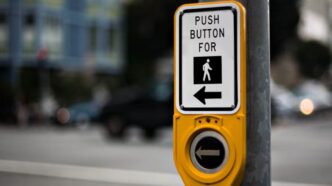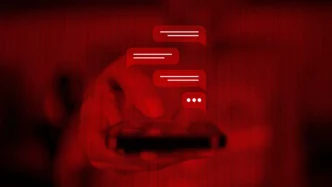Over the weekend, pedestrians in Silicon Valley were met with something bizarre—and oddly futuristic. Crosswalk buttons in Menlo Park, Palo Alto, and Redwood City began playing AI-generated voices eerily mimicking tech titans Elon Musk and Mark Zuckerberg.
Locals shared videos on TikTok showing these hacked crosswalks blurting out strange, sometimes unsettling audio. One clip features a button speaking in a Zuckerberg-like voice, saying, “It’s normal to feel uncomfortable or even violated as we forcefully insert AI into every facet of your conscious experience. I just want to assure you, you don’t need to worry because there’s absolutely nothing you can do to stop it.”
Another button, channeling a melancholic Musk voice, announced: “I guess they say money can’t buy happiness… I guess that’s true. God knows I’ve tried. But it can buy a Cybertruck and that’s pretty sick, right?” Then, after a beat, it adds, “F—k, I’m so alone.”
No one has claimed responsibility for the hack so far, but early signs point to a possible act of digital protest or hacktivism. Social media users have been quick to jump on the moment. “Our crosswalks just got VC funding apparently,” one TikTok user joked, while another quipped, “Menlo Park, home of Meta—crosswalk speakers are getting hacked.”
City officials in Redwood City confirmed they’re actively investigating and trying to resolve the situation. According to Palo Alto Online, the hacking incidents likely began on Friday.
The crosswalks in question are designed to assist visually impaired pedestrians by playing audio cues to indicate when it’s safe to cross. However, as security experts have pointed out in the past, these devices can be vulnerable. In a video posted in 2024, well-known penetration tester Deviant Ollam demonstrated how some of these buttons can be easily accessed due to unchanged default passwords.
Polara, the manufacturer behind many of these audio-enabled crosswalk systems, has not yet responded to inquiries about the breach.
While the voices coming from these hacked devices may seem humorous or surreal, the incident raises serious questions about the vulnerability of public infrastructure—especially as more systems become internet-connected and voice-enabled.
For now, residents are left with a strange soundtrack at the crosswalk, blending comedy, tech critique, and a dose of Silicon Valley irony. Whether this is a prank, protest, or performance art is still unclear. What’s certain is that even the most ordinary public utilities aren’t safe from the reach of AI—and neither are the billionaires behind it.













